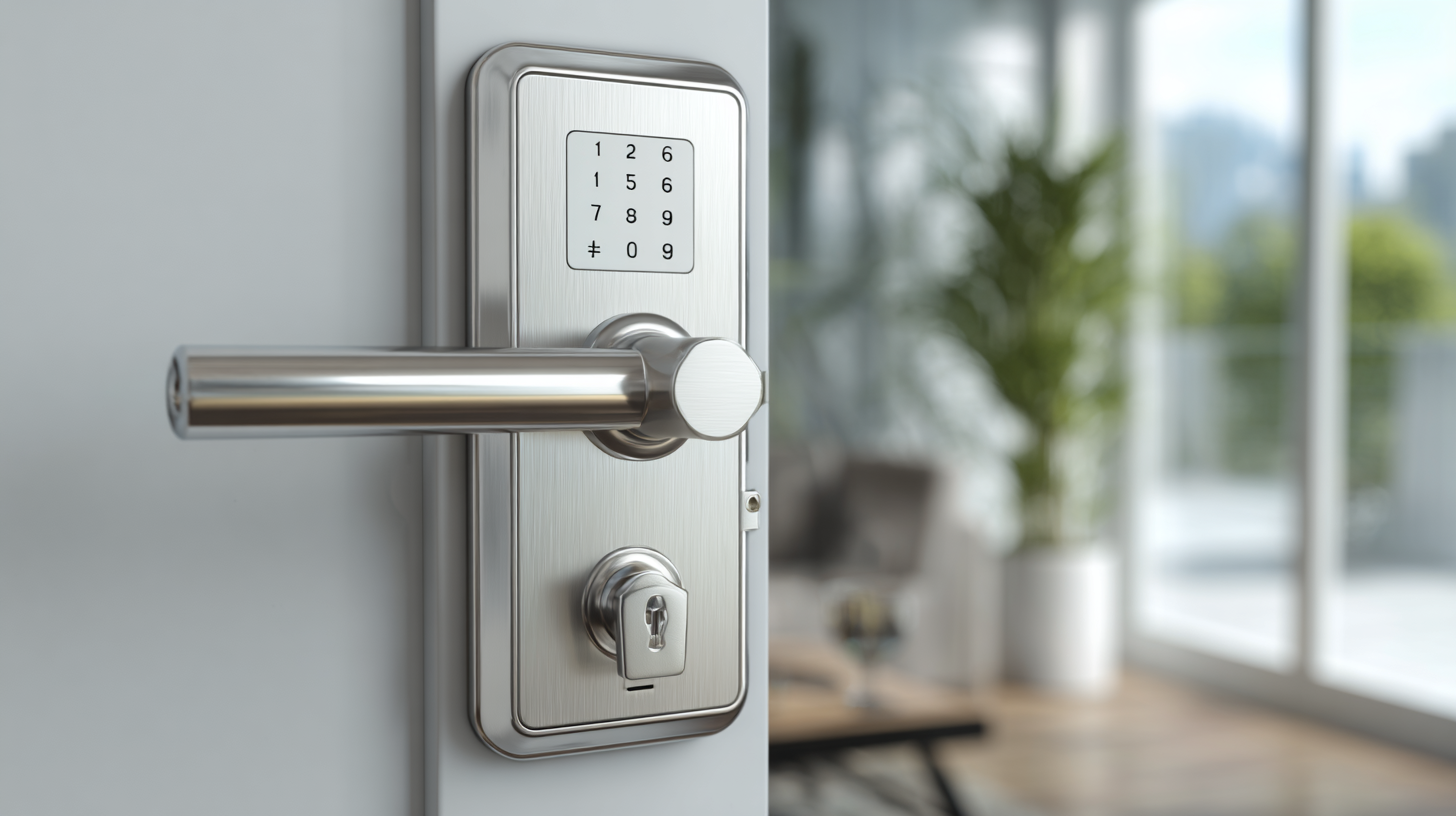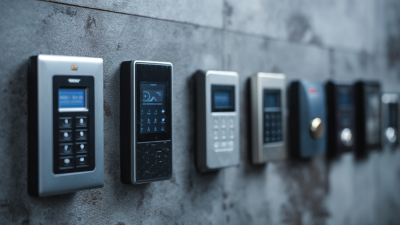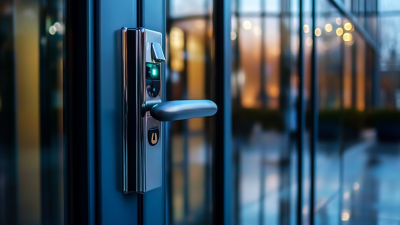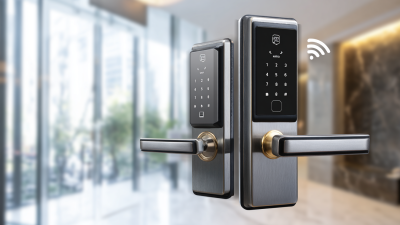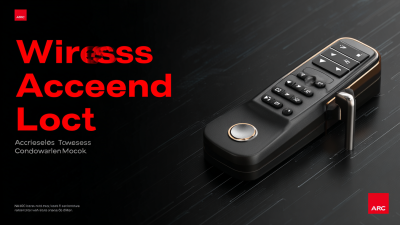Unlocking Security: How Access Control Locks Enhance Your Home and Business Safety
In an era where security concerns are paramount, Access Control Locks have emerged as a pivotal solution for both home and business safety. According to the Security Industry Association, approximately 68% of property crimes involve burglary, highlighting the urgent need for enhanced security systems. Access Control Locks not only provide a robust barrier against unauthorized entry but also offer sophisticated features such as remote monitoring and user access management.
The Global Market Insights report projects that the access control market will exceed $15 billion by 2026, driven by the rising demand for integrated security solutions. As homeowners and business leaders seek to safeguard their premises, the adoption of Access Control Locks is becoming increasingly widespread, underscoring their critical role in contemporary security strategies.
Understanding the Importance of Access Control in Modern Security Systems
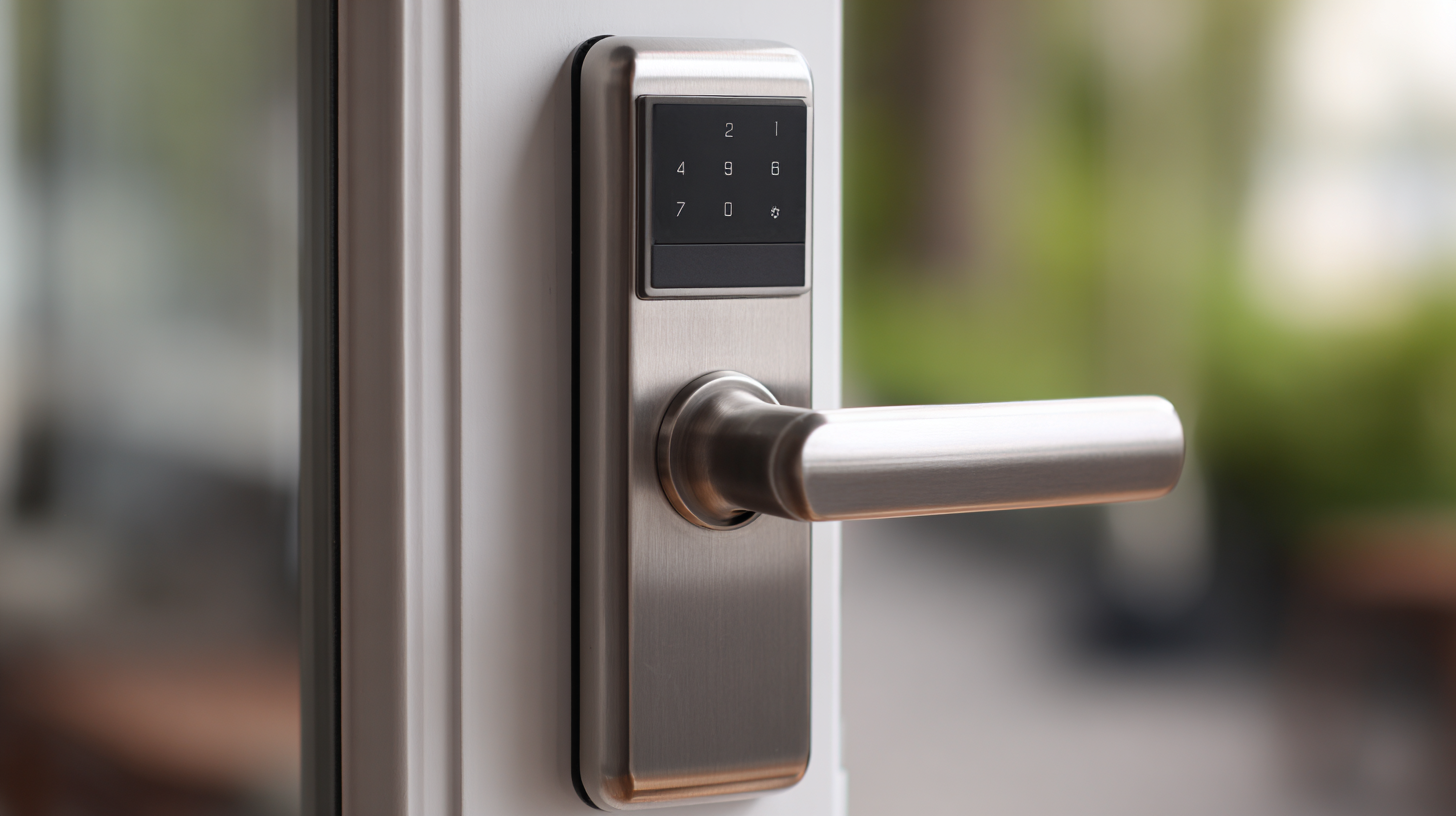 Access control has become a cornerstone of modern security systems, crucial for protecting homes and businesses alike. With the increasing prevalence of smart technology, securing entry points has evolved beyond traditional locks. Access control systems not only provide security but also streamline management of who can enter specific areas, ensuring that only authorized individuals gain access. This is particularly important in commercial settings where sensitive data or valuable assets are stored.
Access control has become a cornerstone of modern security systems, crucial for protecting homes and businesses alike. With the increasing prevalence of smart technology, securing entry points has evolved beyond traditional locks. Access control systems not only provide security but also streamline management of who can enter specific areas, ensuring that only authorized individuals gain access. This is particularly important in commercial settings where sensitive data or valuable assets are stored.
Tips for Implementing Effective Access Control:
- Choose the Right System: Consider whether you need a keypad, card reader, or smart lock, depending on your specific requirements and the volume of people accessing the premises.
- Regularly Update Access Privileges: Regularly review and update who has access to your property, especially when an employee leaves or a contractor finishes a project.
- Integrate with Other Security Measures: Combine access control systems with video surveillance and alarm systems for a comprehensive security approach that enhances overall safety.
Investing in a robust access control system not only mitigates risks but also fosters a safe environment for employees and family members, reinforcing the importance of security in our daily lives.
Exploring Different Types of Access Control Locks for Enhanced Security
Access control locks come in various forms, each designed to boost security for both home and business environments. Traditional key locks serve their purpose but can be easily compromised. Electronic locks, which include keypad and biometric systems, provide a more advanced level of security by requiring a code or fingerprint to gain entry. Smart locks take this a step further by allowing users to control access remotely through mobile apps, providing flexibility for changing codes and monitoring activity in real time.
When selecting access control locks, consider the specific needs of your space. For residential properties, keyless entry systems can eliminate the worry of losing keys while providing convenience for family members and guests. In commercial settings, it’s crucial to choose locks that allow for easy management of access levels—enabling you to give or revoke entry to employees without changing physical locks.
**Tips:** Regularly update access codes and provide unique codes for different users to maintain security. Additionally, consider investing in locks with tamper alerts that notify you of any unauthorized attempts to access your premises, further safeguarding your property from potential threats.
The Role of Smart Technology in Access Control Solutions
Smart technology is revolutionizing access control solutions, providing enhanced security and convenience for both homes and businesses. Traditional locks are being replaced by smart locks, which can be controlled remotely via smartphone apps. This ability to monitor and manage access from anywhere allows property owners to grant entry to visitors instantly and track who enters and exits in real-time. Such features eliminate the need for spare keys and reduce the risk of unauthorized access.
Furthermore, smart access control systems often integrate with other security technologies, such as surveillance cameras and alarm systems, to create a comprehensive security network. Advanced options, like facial recognition and biometric scanning, are increasingly being utilized, providing an extra layer of protection that is difficult to bypass. With these innovations, users can set customized access permissions, schedule entry times, and receive alerts for unusual activity, thereby enhancing the overall safety of their environment. Embracing smart technology in access control not only reinforces physical security but also streamlines the management of access, making it a vital asset for modern safety solutions.
Unlocking Security: How Access Control Locks Enhance Your Home and Business Safety
| Feature |
Traditional Locks |
Smart Access Control |
| Key Type |
Physical Keys |
Keypad, Keyfob, Smartphone |
| Access Control |
Manual Control |
Remote Monitoring & Control |
| Audit Trails |
None |
Detailed Logs & Reports |
| Emergency Override |
Difficult to Access |
Remote Access Features |
| User Management |
Limited |
Flexible User Roles & Permissions |
Cost-Benefit Analysis: Investing in Access Control for Home and Business
Investing in access control systems is a strategic move for both homeowners and business operators aiming to enhance security. According to a report by MarketsandMarkets, the global access control market is projected to reach $11.9 billion by 2026, growing at a CAGR of 8.6% from 2021. This growth is driven by the increasing need for secure authentication methods and the implementation of smart technologies in residential and commercial properties. By investing in these systems, property owners can significantly reduce the risk of unauthorized access, potentially saving thousands in theft-related losses.
Furthermore, the cost-benefit analysis reveals that the initial expenditure of installing advanced locks and access systems often pays off in the long run. A study by the Security Industry Association (SIA) found that businesses installing access control systems experience a potential ROI of 40-60% based on decreased incidents of theft and vandalism. Homeowners also benefit, with advanced locking solutions offering enhanced peace of mind at a fraction of the cost of potential losses. By prioritizing access control, both home and business owners can bolster safety while making a financially sound investment.
Cost-Benefit Analysis of Access Control Systems
This chart illustrates the cost-benefit analysis of investing in access control systems for homes and businesses. The initial investment and annual maintenance costs are compared against the savings from theft prevention, liability reduction, and the increase in property value, highlighting the financial advantages of implementing robust access control measures.
Best Practices for Implementing Access Control in Your Property
Access control is integral to safeguarding both homes and businesses in the digital age. As recent reports highlight, integrating security measures with technology not only enhances physical security but also addresses emerging cybersecurity challenges. For instance, a successful cyberattack could disrupt operations and compromise sensitive data, significantly impacting a business's bottom line and customer trust. Implementing a robust access control system can mitigate these risks by ensuring that only authorized personnel have entry to sensitive areas and information.
Best practices for implementing access control include adopting a self-service model that harnesses technology for scalability and efficiency. This approach allows organizations to manage access permissions dynamically, reducing administrative overhead and minimizing the potential for human error. According to industry analysis, organizations that employ advanced access control solutions report a significant decrease in unauthorized access incidents—up to 70%. Moreover, integrating privileged access management can bolster security further by ensuring that only those who truly need access can obtain it, limiting the risk of internal data breaches. By leveraging these strategies, businesses can enhance their security infrastructure and better protect their assets against both physical and digital threats.

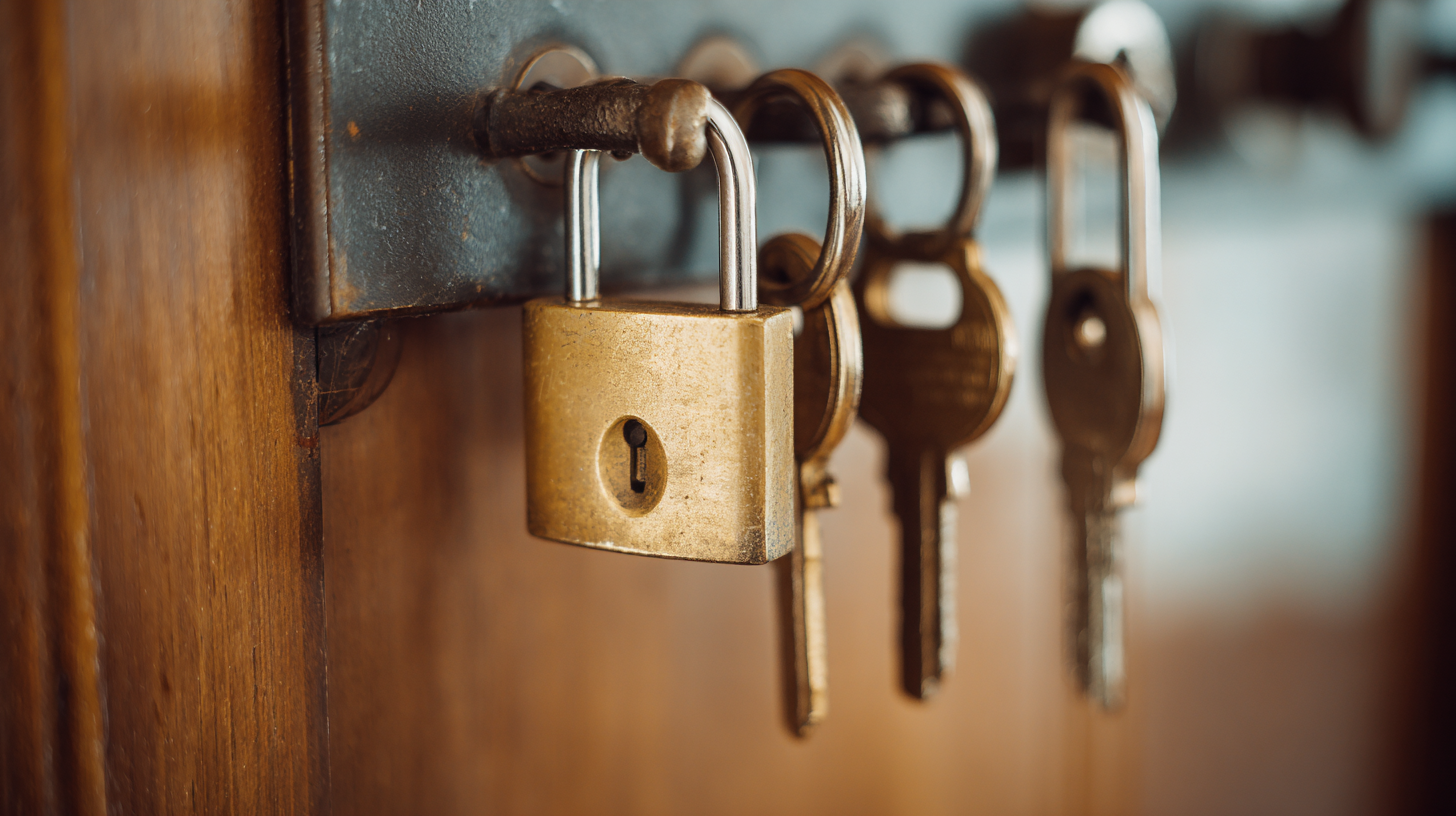
 Access control has become a cornerstone of modern security systems, crucial for protecting homes and businesses alike. With the increasing prevalence of smart technology, securing entry points has evolved beyond traditional locks. Access control systems not only provide security but also streamline management of who can enter specific areas, ensuring that only authorized individuals gain access. This is particularly important in commercial settings where sensitive data or valuable assets are stored.
Access control has become a cornerstone of modern security systems, crucial for protecting homes and businesses alike. With the increasing prevalence of smart technology, securing entry points has evolved beyond traditional locks. Access control systems not only provide security but also streamline management of who can enter specific areas, ensuring that only authorized individuals gain access. This is particularly important in commercial settings where sensitive data or valuable assets are stored.